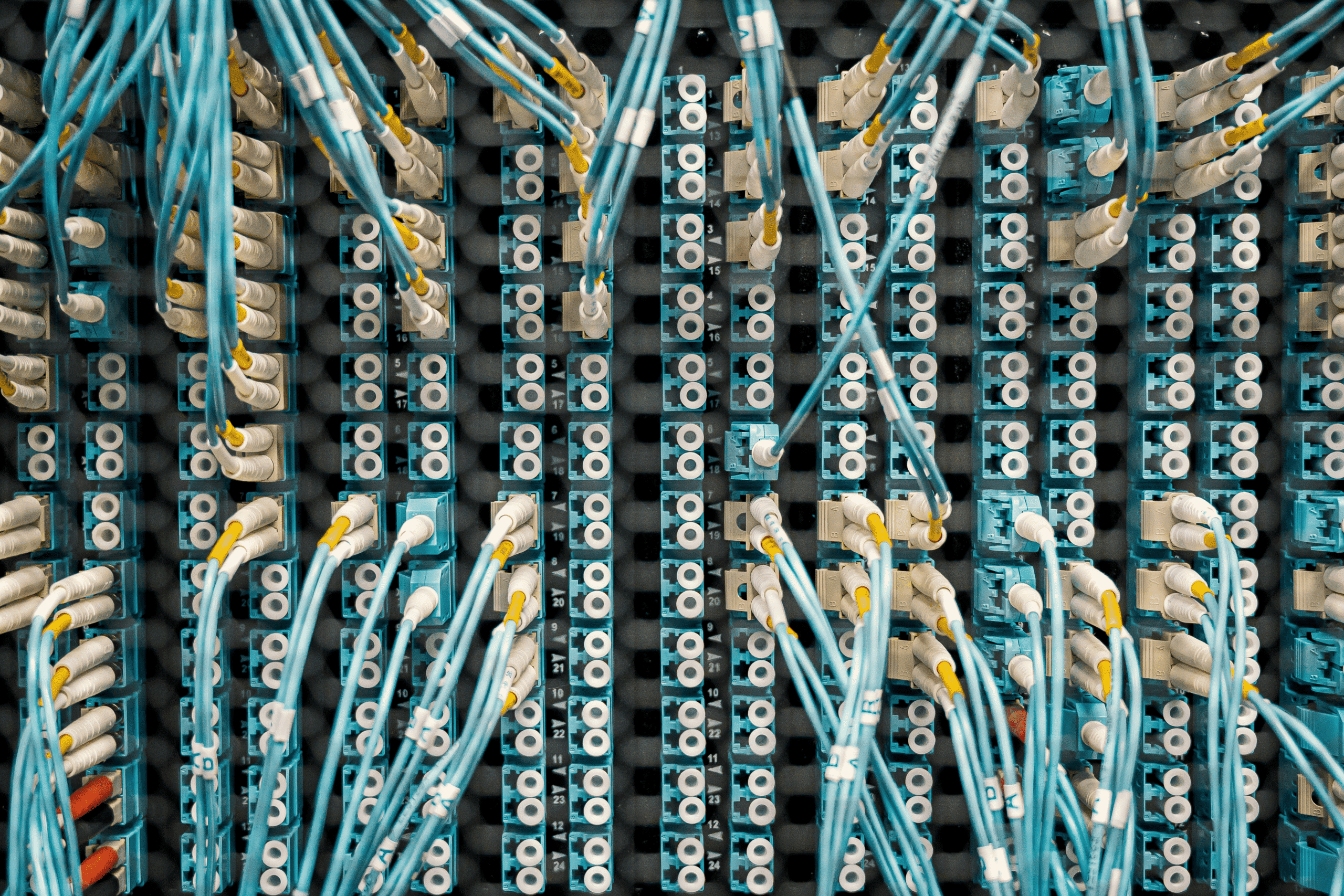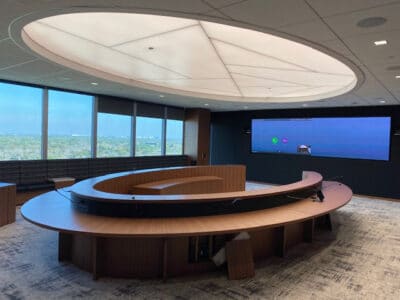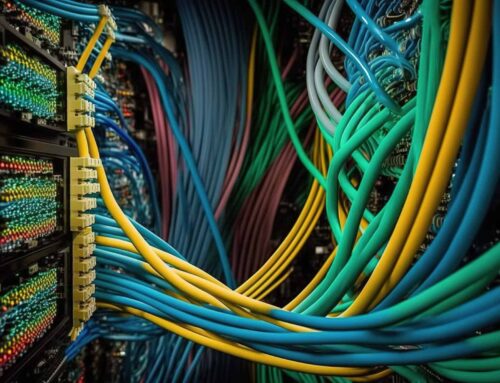Don’t let your low voltage cable plan turn to spaghetti.

In the world of electricity, there are two broad categories for the wires that carry it: power transmission and signal transmission. Although the applications and specifications for electrical wires would boggle most people’s minds, high voltage wires typically carry power only (think outlets, lights, and switches). In contrast, low voltage cabling carries mostly signals or information, with limited power capacity.
If you’re building a new office or dwelling, the general contractor will handle the high-voltage wiring, however, they may not have the skills or experience to plan and install the low voltage cabling — which means that vital systems such as internet, security, and telephone will be installed as an afterthought.
Uses For Low Voltage Cabling
Because low voltage, or structured cabling, carries less risk of electrocution, there are fewer codes and regulations. So you can just install those systems yourself and save a bunch of money, right? Not so fast. What you’re most likely doing is installing a bunch of future headaches.
One of your first steps should be to think about the types of low voltage systems your building will need and look for ways to optimize and future proof the cabling you install.
Here are some of the most common types of low voltage systems you can expect to need in a new or remodeled space.
Telephones
You might say telephone wires are the original low voltage cable. And while cellphones have all but replace landlines for most people. Many office buildings, hotels, and other businesses still rely on conventional telephone systems daily.
Internet
We take the internet for granted, especially when it comes to free wi-fi. But connected to every wi-fi router is a data cable that flows into the great trunk of wires that keep the internet alive.
Fiber optics
Although fiber optic cable uses light instead of electricity for signal transmission, it still needs specific low voltage infrastructure to ensure proper function.
Cable television
Poke around your house and alongside your telephone jack, you’ll probably find a coaxial outlet for television nearby. You may not need a coaxial connection for every room anymore, but this is still a relevant type of structured cable even for new construction.
Security and Surveillance
Cameras, motion sensors, alarm speakers all need dedicated low voltage cabling to function. Along with the data network, the integrity of the security network is something you should think through long before the paint is dry.
Audio/Visual

A/V systems can blur the line between high and low voltage cabling, simply because A/V technology can be very power hungry. Almost nothing is as maddening as a A/V wiring system that is poorly executed. Every presentation, movie, or video-conference will remind you of your choice for better or for worse.
Intercom systems
Along with conventional telephone systems, intercoms get less attention than they use to, but depending how people plan on using the space, they can still be a crucial part of how the building functions.
Lighting

As LED lighting grows increasingly popular, the use of low voltage wiring for lights also increases. One increasingly popular solution is PoE lighting, or Power-over-Ethernet lighting solutions. These solutions use less power and connect lighting to the internet of things, allowing for more automation.
Benefits Of Low Voltage Cabling
As you can see, there are multiple essential systems that require structured cabling in order to function properly. How well you plan for these systems will influence how everyone experiences the space you’re designing or building.
Future Proofing
Think back to the coaxial wires used for cable television. They’re single purpose cables that are quickly falling out of use. Contrast that with Cat 5 and Cat 6 data cables, which are must-have, even if you’re planning on using wi-fi. The types of low voltage systems you plan for and install can have a big impact on the flexibility and future-ready performance of a space.
Cost
Measure twice, cut once. Or put another way: plan late, pay twice. Planning ahead for your low voltage cabling needs is a great way to do your future self a big favor. You’ll save time, money, and get a much better result.
Safer
Structured cabling has a very low risk for electrocution, but that doesn’t mean that it’s risk free. Poor planning can lead to poor layout, poor layout can lead to poor connections or leave wires vulnerable to damage, which can still lead to fires, or other structural harm.
Low Voltage Cable Planning
The DIY-approach to low voltage cable installation can seem like a great way to shave dollars off an overgrown budget, but that just isn’t the case. Worst case scenario you’ll never see the performance you want from badly installed low voltage infrastructure, even after spending thousands (or hundreds of thousands) to troubleshoot and fix problems.
About i.e.Smart Systems
i.e.Smart Systems is a Houston, TX based technology integration partner that specializes in design and installation of audio/visual technology and structured cabling. For more than three decades, our team of in-house experts has partnered with business owners, architectural firms, general contractors, construction managers, real estate developers, and designers in the Houston market, to deliver reliable, scalable solutions that align with their unique goals.




